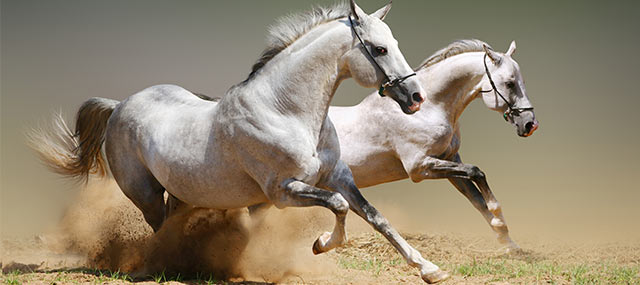Simple safety measures can eliminate or drastically reduce the possibility of an accident or fire around your horse stables and property. Are you looking in all the right places for possible pitfalls?
The following safety tips can help you to reduce accidents, protect your propertu and even save you money, but their effectiveness will depend on how often you use them – and on how well you demonstrate their importance to other visitors or employees on your premises. If you own a horse, board horses or run a equine sport establishment, then it’s time you implemented a safety program to reduce your risk of costly insurance claims.
A successful safety program requires regular supervision and planning. While this list is not exhaustive and should not take the place of the advice given by fire and police departments and other trained professionals, it can be the jumping off point for establishing your own safety program. And following these guidelines can help you qualify for lower insurance premiums by cutting back on the number of claims you file in a year. Each of these claims can raise your insurance rates, not to mention cost you time and deductibles. So take steps to reduce your risk of accidents and fires today.
15 Equine Insurance Tips to Protect Your Horse, Property and Pocketbook
- Establish a routine maintenance and premises inspection plan. Keep accurate records of all inspections and repairs conducted.
- All roads and lanes should be maintained for easy access by fire fighters. Gates need to have proper clearance so that fire trucks can successfully navigate onto the property. And if necessary, give a copy of your keys to the fire department.
- Emergency medical supplies should be easily accessible and fully-stocked.
- Post emergency numbers in each building and at all phones. Include numbers for fire, police, veterinarian and hospita.
- Post a fire escape plan near the exits of all buildings. This should include plans for removing livestock or horses from areas of danger, such as a designated pasture for turn out. Practice your plan to ensure all family members or employee understands their duties.
- “No Smoking” signs, fire alarms, extinguishers and sprinklers are recommended in all buildings. All devices should be properly installed, meet UL standards, and be tested periodically.
- Regularly Maintain all outbuildings, barns, stables, etc.. (Inspect roofs, interior ceilings and walls for leaks or weak spots. Windows or glass should be replaced as needed. Repair or replace loose siding, doors and roofs. Clear debris, weeds and other fire hazards away from buildings and out of rain gutters. Keep emergency exit ways clear of obstructions. Remove cobwebs and dust from heat and electricity sources, including lights, fans and receptacles.)
- Properly ground any metal-sided buildings and structures to prevent lightning strikes.
- Fencing on your property should be checked and repaired at least once a month.
- Trees should be pruned or removed from near buildings or electric wires to prevent damage during storms. Also consider removing trees which could fall across roads and block access to your property.
- All materials, supplies, and tools should be properly stored when not in use to prevent injuries.
- Clear all fuel tanks, combustible materials or liquids (i.e. paint, gas, kerosene, cleaning solvents) away from any building or potential ignition hazards. Properly labeled and store containers behind barriers or metal cages to avoid collision with a vehicle or machinery.
- Store machinery away from flammables or combustibles and use cautiously in areas frequented by people or animals.
- Dispose of all flammable trash and debris in a secured waste container.
- Use a separate open shed for hay storage (away from horse and human residences) to avoid spontaneous combustion. Ensure the hay is dry and properly cured before placing in stacks that are at least 250 feet apart. Stack limit may vary based on insurance coverages.
The Average Horse Owner NEEDS Equine Liability Insurance
While safety can help you save money on your premiums, insurance remains a necessity for every farm and horse owner. Liability and property coverage will help to protect your assets and keep you in business in the event of a loss.
Equine Liability Coverage can protect you from lawsuits and expenses when…:
Your horse escapes from its stall or pasture, runs into the road, and causes an accident.
A friend or guest falls and is injured riding your horse.
Your horse kicks someone and causes an injury on the trail or at a show.
If you or your horse injure another person or damage another’s property in an accidental, unintentional way, equine liability insurance is there to help. Expect the insurer investigate any claims and depending on the claim, pay the injured person, and/or his or her family a sum of money within policy limits as a settlement. If the provider disputes liability with the injured party, they may provide a legal defense, pay costs, and/or pay any judgment that may be issued against you, within policy limits.
This could save you an enormous sum of money. If you are not insured, you are fully responsible for paying these expenses on your own. Ask Atlus Plus Insurance about affordable Equine and Farm Insurance Packages. Our agents are experienced with everything from personal horse liability protections to boarding and commercial farm operations.

